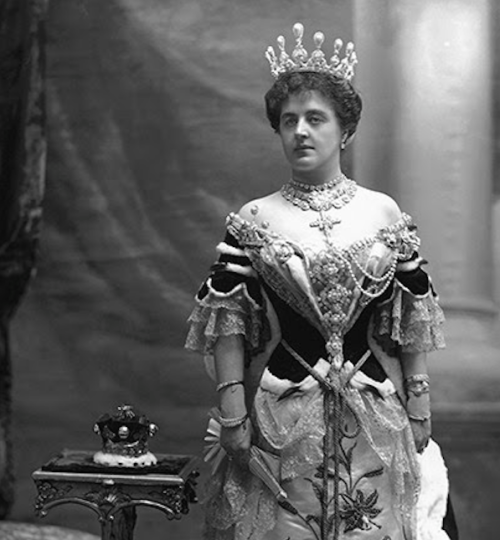 |
| Grand Ladies Site |
The Mellerio Shell Tiara
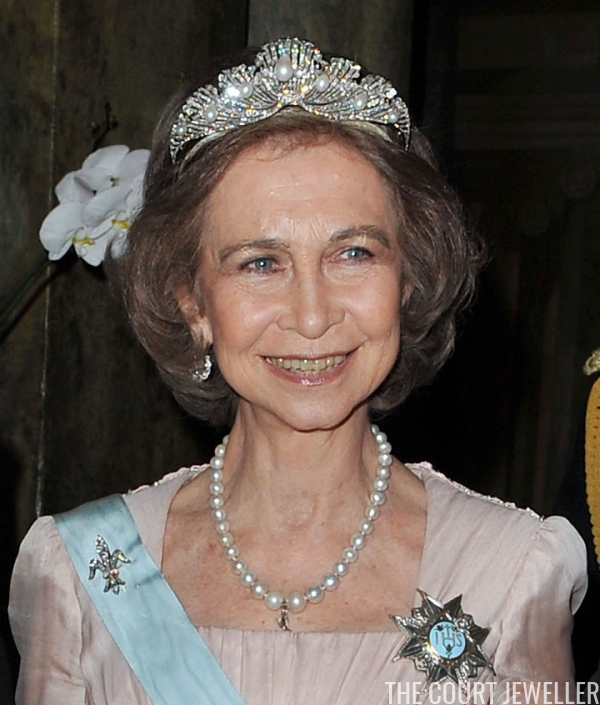 |
| Queen Sofia wears the tiara at the Swedish royal wedding, 2010 (Pascal Le Segretain/Getty Images) |
Of all the diadems in royal vaults, the regal tiaras created by Mellerio dits Meller frequently rank as favorites among the tiara lovers of the world. Today’s diamond and pearl tiara, the Mellerio Shell Tiara, is one of the most unique sparklers ever created by the jewelry house.
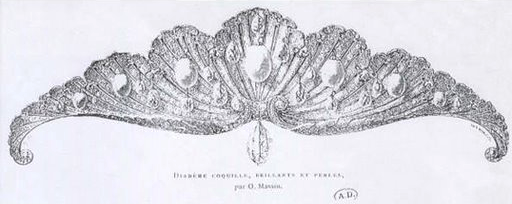 |
| The original Oscar Massin design for the tiara |
Made in 1867, the shell tiara was purchased by Queen Isabella II of Spain the following year as a wedding present for her daughter, Infanta Isabella. While Mellerio’s headquarters were (and still are) based in Paris, they opened a branch in Madrid in 1850 and subsequently became a favorite with the royals and nobles of nineteenth-century Spain. This particular Mellerio creation, based on a design by Oscar Massin, features drop pearls and diamonds suspended from a diamond-encrusted frame that is designed to look like a shell. (Others have also noted the tiara’s resemblance to a cresting wave.) The tiara can be worn with or without an additional diamond drop suspended from the center of the tiara’s base.
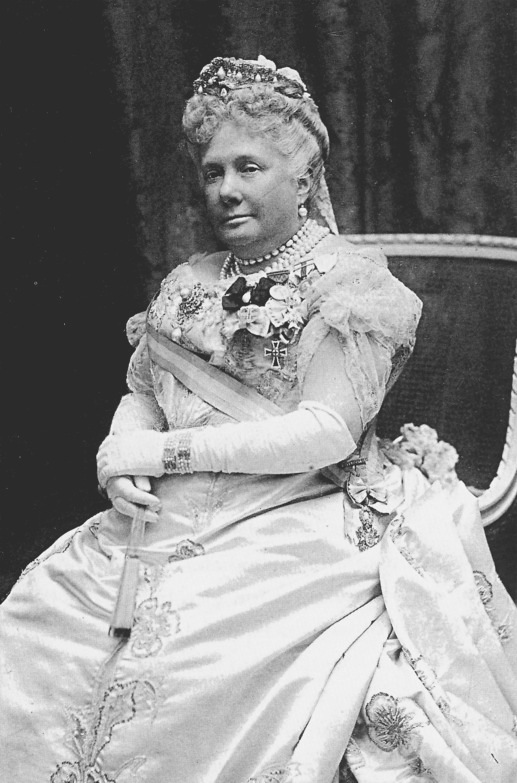 |
| Infanta Isabella wears the tiara |
Infanta Isabella, who was known as “La Chata,” wore the tiara throughout her lifetime. On at least one occasion, she loaned the sparkler to her younger sister, Infanta María de la Paz. Isabella did not have any children, so when she died, she bequeathed the shell tiara to her nephew, King Alfonso XIII. His wife, the British-born Queen Ena, was only photographed in the tiara a few times; she also loaned it at least once to her daughter-in-law, the Countess of Barcelona.
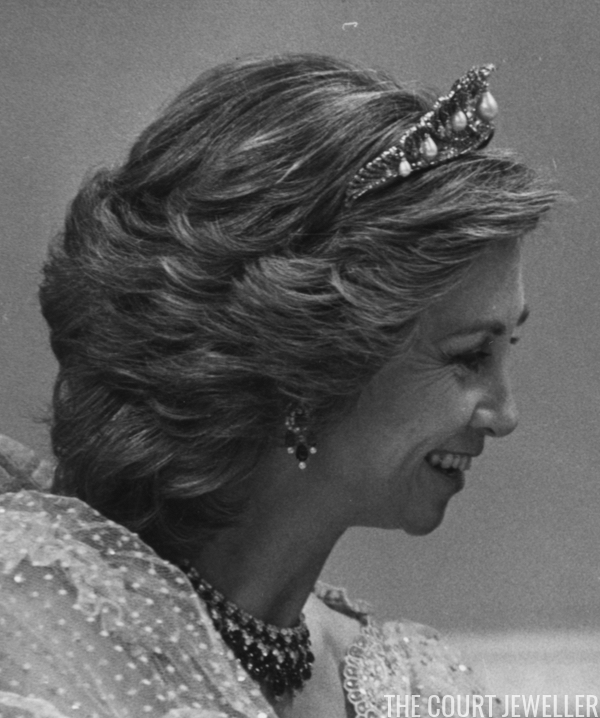 |
| Queen Sofia wears the tiara in Ottawa, 1975 (Keystone/Hulton Archive/Getty Images) |
In 1962, the Spanish royal family gained a new member when Queen Ena’s grandson, Juan Carlos, married Princess Sophia of Greece and Denmark. Queen Ena and Juan Carlos’s parents (the Count and Countess of Barcelona) jointly gifted the shell tiara to the the new Spanish princess, who adopted the Spanish spelling of her name after her marriage. Sofia wore the tiara for the first time at her pre-wedding ball in Athens. After her wedding, and throughout her husband’s reign, the tiara was a regular part of her jewelry rotation for major gala events, including state banquets and royal weddings.
But Sofia has also continued the tradition of loaning this tiara to other women in the family. Both of her daughters have been depicted wearing the tiara, as has her sister-in-law, Infanta Margarita. In 2007, she also loaned the piece to her daughter-in-law, the Princess of Asturias, who is now Queen Letizia of Spain. Letizia has so far worn the tiara only once in public, at a December 2007 state banquet honoring the President of the Philippines.
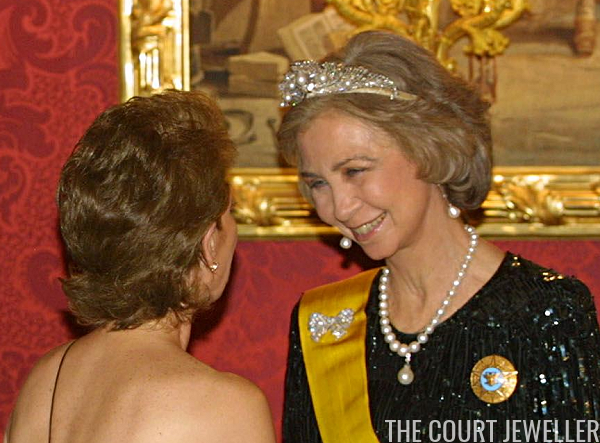 |
| Queen Sofia wears the tiara at a gala dinner for the President and First Lady of Mexico, 2001 (Marc Alex/AFP/Getty Images) |
The tiara isn’t a part of the royal family’s joyas de pasar, but rather is one of Sofia’s personal possessions, which means that it did not automatically transfer to Letizia when her husband became king. But as Sofia has stopped wearing tiaras in public, I think it’s likely that we’ll next see the tiara again on either Letizia or one of her daughters. It’s too interesting a piece to remain shut up in the vaults!
Royal Tour of Canada: Engagements in Ontario
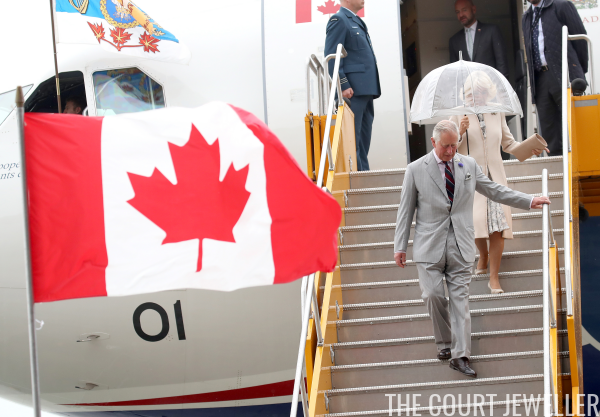 |
| Chris Jackson/Getty Images |
The Prince of Wales and the Duchess of Cornwall continued their Canadian tour in Ontario on Friday, and the jewelry worn had a distinctive military flair.
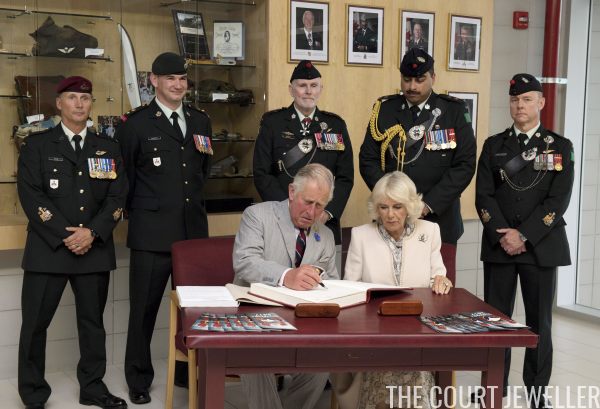 |
| Arthur Edwards – Pool/Getty Images |
Among their stops for the day: Canadian Forces Base Trenton, where Charles and Camilla visited the Queen’s Own Rifles of Canada.
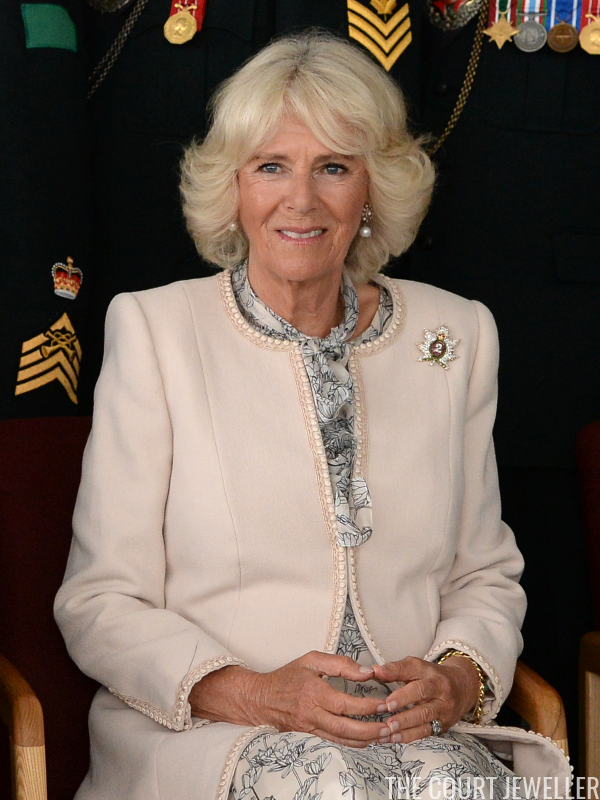 |
| Joe Giddens – Pool/Getty Images |
Appropriately, Camilla wore a bejeweled military badge on her coat. This is a gem-studded version of the cap badge of the Queen’s Own Rifles of Canada. She has been the regiment’s Colonel-in-Chief since 2010.
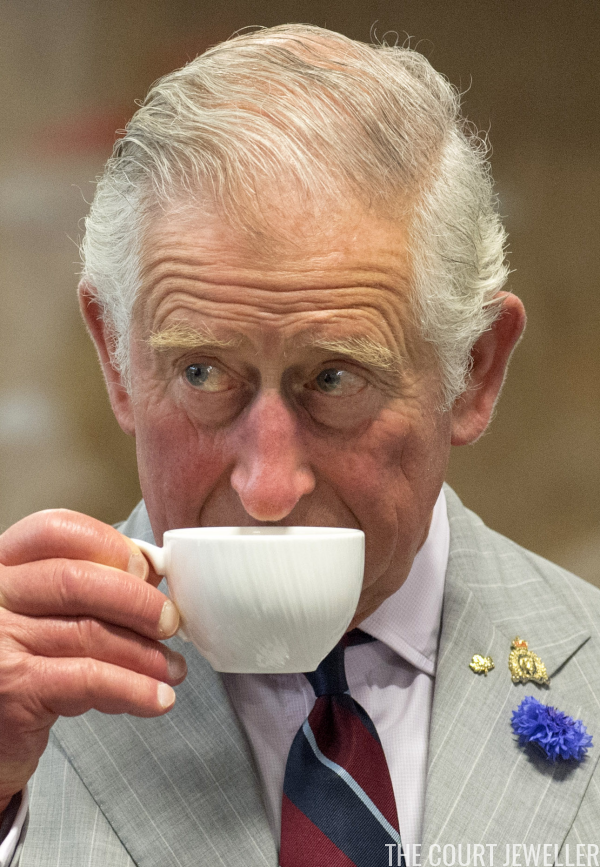 |
| Arthur Edwards – Pool/Getty Images |
Along with his small maple leaf pin, Charles also wore a military pin. I believe this is the heraldic badge of the Royal Canadian Mounted Police. Charles is the RCMP’s Honorary Commissioner.